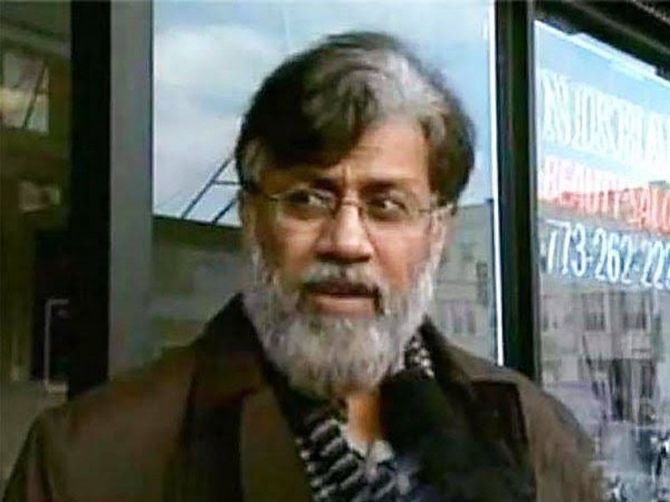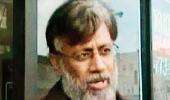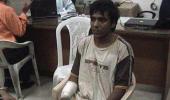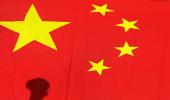Pakistani-origin terror convict Tahawwur Rana, whose extradition to India has received a green signal, was 'very relaxed' in the days after the 26/11 attacks and wanted Pakistan's highest military honour to be bestowed on the Lashkar-e-Taiba (LeT) terrorists who carried out the carnage in Mumbai.

In a major victory for India's fight in bringing perpetrators of the 26/11 Mumbai attacks to justice, United States Magistrate Judge Jacqueline Chooljian of the US District Court of the Central District of California issued a 48-page order Wednesday saying that Rana 'should be extradited to India' under the extradition treaty between India and the US.
'The Court has reviewed and considered all of the documents submitted in support of and in opposition to the Request and has considered the arguments presented at the hearing. Based on such review and consideration and for the reasons discussed herein, the Court makes the findings set forth below, and CERTIFIES to the Secretary of State of the United States the extractability of Rana on the charged offences that are the subject of the Request,' the order said.
According to the details in the Certification of Extraditability and Order of Commitment about Rana's involvement and association with a friend and LeT terrorist David Coleman Headley, on December 25, 2008, a 'co-conspirator who met Rana in Dubai sent Headley an email asking 'How's . . . [Rana's] reaction on what all is happening, is he terrified or relaxed'?'
Headley responded the next day that Rana 'is very relaxed' and was trying to calm Headley down.
In a September 7, 2009 conversation, Rana told Headley that the 'nine Lashkar terrorists who had been killed in the Mumbai attacks should be given Nishan-e-Haider', which is Pakistan's highest military honour.
Rana, now 62, also asked Headley to tell 'one of the co-conspirators responsible for planning the Mumbai attacks that he should get a medal for top class'.
The document also notes that Rana was pleased to learn Headley had already conveyed the compliment based on prior statements Rana had made equating the co-conspirator to a famous general.
Rana also occasionally communicated directly with some of Headley's contacts in Pakistan, it said.
'Rana was also in direct touch with the . . . handlers for [Headley] and passed on information as and when required.'
The order noted that the court cannot certify Rana's extradition unless there is probable cause to believe he committed the offences for which extradition is sought.
Citing its reasoning in detail, the order states, 'Accordingly, the Court finds there is probable cause to believe Rana committed the charged offences as to which extradition has been sought and should be extradited to India under the extradition Treaty between the United States and India.'
India filed a complaint on June 10, 2020, seeking the provisional arrest of Rana with a view towards extradition. The Biden Administration had supported and approved the extradition of Rana to India.
The order also mentions that in India, Headley conducted surveillance on Chabad Houses in Delhi, Goa, and Pushkar as well as the National Defence College (NDC), which 'teaches courses for high-level Indian Army officers, colonels and up'.
He kept Rana apprised of the surveillance activities.
In the September 7, 2009 conversation, Headley and Rana discussed targeting the NDC, Rana told Headley that he was already aware that the NDC was a target, and 'they talked about how such an attack would kill more high-ranking Indian military officials than previous wars between India and Pakistan'.
Rana also set up an email account for Headley so that Headley could communicate securely with Rana, and Headley transferred a list of Chabad houses in India -- including the ones he was supposed to conduct surveillance on -- into the email account for security purposes.










